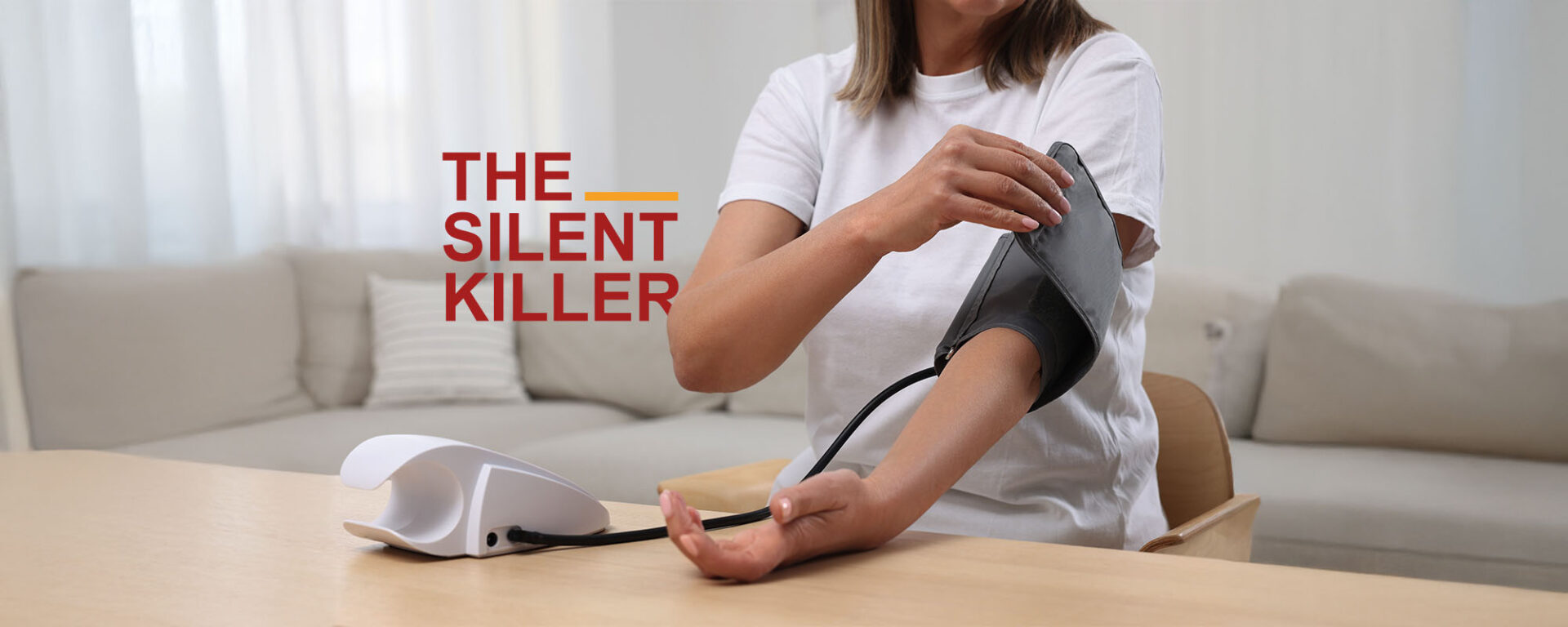High blood pressure, or hypertension, is often called the “silent killer” because it typically has no symptoms but can lead to serious health problems if left untreated. Despite being a common condition, many people don’t fully understand what it means or how to manage it. This blog will break down hypertension, explain why it matters, and provide practical tips to help keep your blood pressure in check.
What Is Hypertension?
Blood pressure is the force of blood pushing against the walls of your arteries as your heart pumps. It’s measured in two numbers:
1. Systolic pressure (the top number): The pressure when your heart beats.
2. Diastolic pressure (the bottom number): The pressure when your heart rests between beats.
A normal blood pressure reading is around 120/80 mmHg. Hypertension is diagnosed when your blood pressure consistently measures 130/80 mmHg or higher, according to current guidelines.
Why Is Hypertension Dangerous?
When your blood pressure stays high for a long time, it puts extra strain on your heart, blood vessels, and other organs like the brain and kidneys. Over time, this can lead to:
• Heart disease: Increased risk of heart attacks and heart failure.
• Stroke: A leading cause of disability and death worldwide.
• Kidney damage: Hypertension is a major cause of chronic kidney disease.
• Vision loss: High blood pressure can damage the tiny blood vessels in your eyes.
According to the World Health Organization (WHO), an estimated 1.28 billion adults worldwide have hypertension, but 46% of them are unaware of their condition.
What Causes Hypertension?
Hypertension can be classified into two types:
1. Primary (Essential) Hypertension:
• No specific cause, but linked to risk factors like age, family history, obesity, poor diet, and lack of physical activity.
2. Secondary Hypertension:
• Caused by another condition, such as kidney disease, hormonal disorders, or certain medications.
Symptoms: Why It’s Called the Silent Killer?
Hypertension usually has no obvious symptoms. Most people don’t realize they have it until they experience a complication like a heart attack or stroke. That’s why regular blood pressure checks are so important, especially if you have risk factors.
How Is Hypertension Diagnosed?
Hypertension is diagnosed through blood pressure measurements, typically taken during routine check-ups. A single high reading doesn’t necessarily mean you have hypertension. Your doctor will likely monitor your blood pressure over time or recommend 24-hour ambulatory monitoring for a more accurate assessment.
Managing and Treating Hypertension
The good news is that hypertension is manageable, and small changes can make a big difference.
Lifestyle Changes
1. Healthy Diet:
• Follow the DASH diet (Dietary Approaches to Stop Hypertension), which emphasizes fruits, vegetables, whole grains, lean protein, and low sodium.
• Limit salt intake to less than 2,300 mg per day (about one teaspoon).
2. Regular Exercise:
• Aim for at least 150 minutes of moderate aerobic activity per week, such as brisk walking, cycling, or swimming.
3. Maintain a Healthy Weight:
• Losing even a small amount of weight can significantly lower your blood pressure.
4. Limit Alcohol and Quit Smoking:
• Excessive alcohol and smoking contribute to high blood pressure and heart disease.
5. Stress Management:
• Practice relaxation techniques like meditation, yoga, or deep breathing exercises.
Medications
If lifestyle changes aren’t enough, your doctor may prescribe medications such as:
• Diuretics (help remove excess salt and water).
• ACE inhibitors (relax blood vessels).
• Calcium channel blockers (reduce the workload on your heart).
• Beta-blockers (slow your heart rate).
Always take medications as prescribed and communicate any side effects to your healthcare provider.
Preventing Hypertension
Preventing high blood pressure is often easier than treating it. Here are some tips:
• Monitor Your Blood Pressure: Regular checks can help you catch any changes early.
• Stay Active: Even light physical activity like gardening or walking can lower your risk.
• Eat Smart: Avoid processed and fast foods that are high in salt, sugar, and unhealthy fats.
• Stay Hydrated: Drink plenty of water throughout the day.
When to See a Doctor?
If you experience the following, seek medical attention immediately:
• Severe headaches.
• Chest pain.
• Difficulty breathing.
• Vision problems.
• Irregular heartbeat.
These could be signs of dangerously high blood pressure or related complications.
Final Thoughts
Hypertension may be silent, but it doesn’t have to be deadly. With awareness, regular monitoring, and healthy habits, you can take control of your blood pressure and reduce your risk of serious health problems.
Take the first step today—get your blood pressure checked, and encourage your loved ones to do the same. Together, we can fight the silent killer and build a healthier future.

